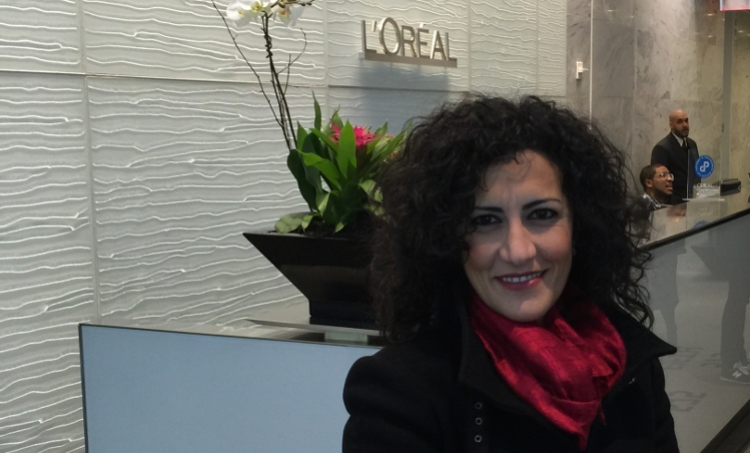Dr. Laure El Chamy
Tell us a little about how you got started in your career. Did you always know that you wanted to work in science?
Oh yeah! Since I was very young I have always loved living things. It wasn’t just their appearance that fascinated me. I wanted to get to know the details. “Why is it like this and why and why and why?” People always said that I was way too curious. I really wanted to know everything about how living systems work, so science and biological science in particular were a natural fit for me. I am happiest when I’m learning and honestly, if I had to do my studies all over again, I would.
What did it mean to you to be recognized as a L’Oreal-UNESCO For Women in Science fellow?
Even before I was selected, I was aware of the program and I knew how it impacted the careers of many women. Two L’Oreal Laureates are Nobel Prize winners, so the program carries a lot of weight. Being nominated was an important recognition for me and my research. Beyond the financial support, the affiliation with L’Oreal accredits you in other people’s minds. This was the necessary push for my career at a critical point.
Why was it such a crucial moment for you?
I was coming back to Lebanon to do research and continue pursuing a career in fundamental genetics and was finding it a bit tricky to get started because we’re in a world where applicable research is much better funded than fundamental research. My work in innate immunity—trying to find the genes that are involved in inflammation and understanding the molecular basis of host-pathogen interactions —is very fundamental. The necessity of medical research, for example, is clear, but people sometimes forget that to get to that point, you first need fundamental research.
What I needed was visibility, and more than that, I needed the confidence of the people around me. The L’Oreal fellowship, as an internationally renowned program, gave me the push I needed. The set-up of my project was significantly helped by what I call the “L’Oreal-UNESCO passport”. This program opened the door for me to new networks and new collaborations.
What would you tell other women or girls considering a career in a STEM field?
I’ve always said, “If I did it, than you can do it.” It’s important not to consider science a man’s career or a woman’s career. It’s a scientist, period. I am the kind of person who does not distinguish between genders. I was lucky to be born into a family and to grow up in a place that did not put restrictions on me as a woman. I was always encouraged by the people around me to follow my ambition. In the lab and at my university, my mentors include women and men. I think it’s so important for entire communities to rally around women and to be involved in encouraging girls to pursue careers in science. We have to let them know that when you believe in something and you work for it, gender is not a limitation. Dream, will, and ambition…these have no limits, in any field.





